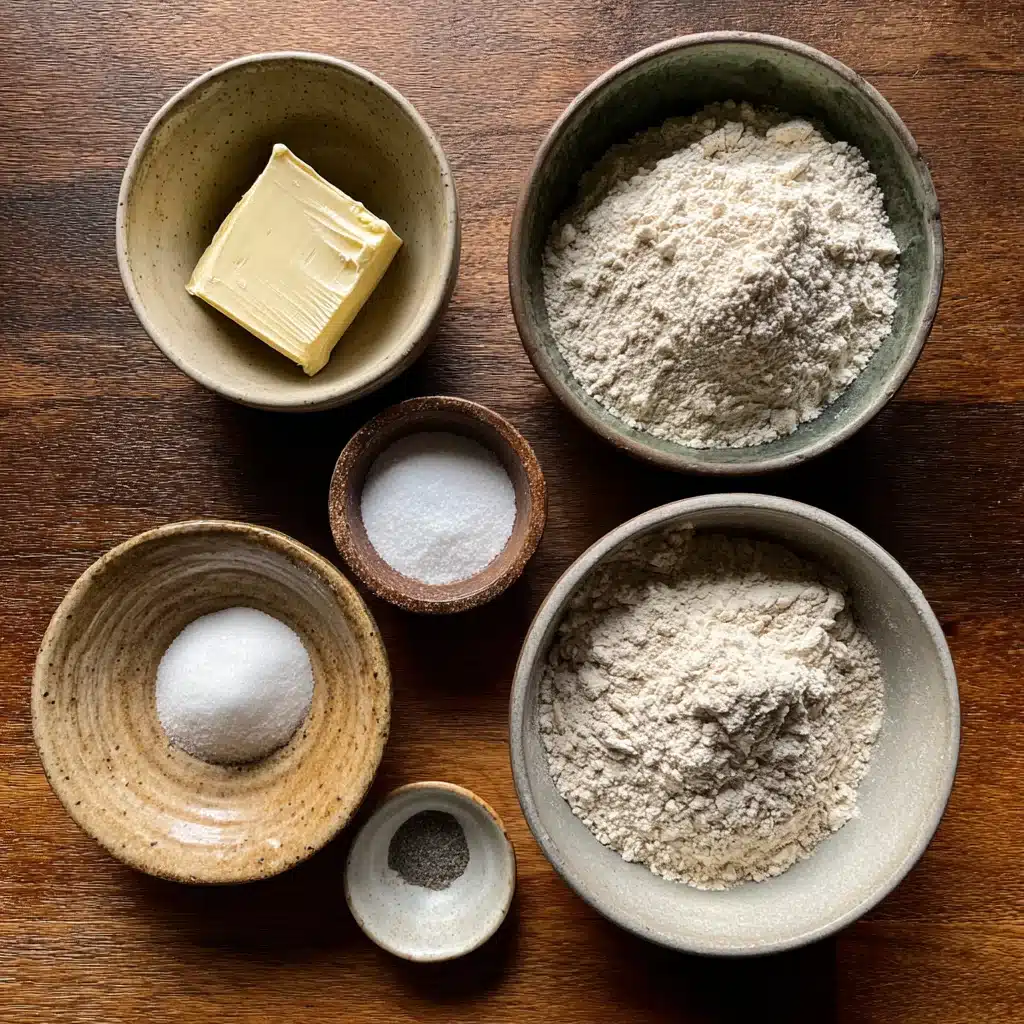Does sourdough have gluten? It’s one of the most asked questions in my sourdough classes, and for good reason. With gluten intolerance on the rise, people are turning to sourdough as a possibly safer bread option. But what’s the real story behind sourdough and gluten? In this article, I’ll walk you through how gluten behaves during fermentation, how sourdough compares to other breads, and what the science says about its effect on digestion and inflammation. If you’ve ever asked “does sourdough bread have gluten?” or “is sourdough gluten-free?”, you’re in the right place.
My Journey Into the World of Sourdough and Gluten
Hi, I’m Marlene Quinn, and my obsession with sourdough started in Mendocino, California, after baking a disaster loaf for a date. He ghosted, but my sourdough starter, Clementine, stuck with me. I’ve since hosted workshops around the country, often fielding one question again and again: does sourdough have gluten?
I didn’t go to culinary school, I learned from barefoot bakers and flour-dusted grandmas. But even they didn’t always know the science behind gluten in sourdough. So I started researching, testing, and most importantly, tasting.
If you’ve ever wondered whether sourdough bread contains gluten or if it’s gentler on your gut, you’re not alone. Let’s dig in.
Why the Gluten Debate Matters in Sourdough
Gluten is a protein found in wheat, rye, and barley. And since sourdough is often made from wheat flour, the question, is there gluten in sourdough bread, has a complicated answer. Fermentation breaks down gluten somewhat, making it easier to digest for some. But it doesn’t remove it.
In fact, I’ve written more about this in my guide on whether sourdough contains gluten, which you’ll find useful if you’re exploring gluten sensitivities or looking for a lighter bread option.
If you want to understand sourdough on a deeper level, beyond just flavor, start here.
Print
Does Sourdough Have Gluten? 5 Powerful Reasons to Love It
- Total Time: 13 hrs
- Yield: 1 loaf 1x
- Diet: Vegetarian
Description
This simple guide breaks down whether sourdough has gluten, who can eat it safely, and how fermentation affects gluten structure.
Ingredients
3 cups organic bread flour (or whole wheat)
1 1/4 cups filtered water
1/2 cup active sourdough starter (fed)
1 1/2 tsp sea salt
Instructions
1. Mix starter, water, and flour in a bowl. Rest 30 minutes.
2. Add salt. Mix and fold.
3. Cover and bulk ferment 6–12 hours at room temp.
4. Shape dough, let rise in banneton 1–2 hours.
5. Preheat oven with Dutch oven inside to 475°F.
6. Score dough, bake 20 min covered, then 25 min uncovered.
Notes
Sourdough made with wheat flour contains gluten. Fermentation reduces, but does not eliminate it.
For gluten-free baking, use certified gluten-free flours like buckwheat or brown rice.
Use a long fermentation (12–48 hrs) to reduce gluten impact.
- Prep Time: 20 mins
- Cook Time: 45 mins
- Category: Sourdough, Bread, Gluten Awareness
- Method: Baking
- Cuisine: American, Artisan
Nutrition
- Serving Size: 1 slice
- Calories: 160
- Sugar: 0g
- Sodium: 320mg
- Fat: 0.5g
- Saturated Fat: 0g
- Unsaturated Fat: 0.5g
- Trans Fat: 0g
- Carbohydrates: 34g
- Fiber: 2g
- Protein: 5g
- Cholesterol: 0mg
Keywords: does sourdough have gluten, sourdough bread gluten, sourdough celiac, gluten structure, fermented bread

Sourdough and Gluten Science Explained
Does Sourdough Have Gluten or Not? The Real Answer
So, does sourdough have gluten? Yes, but it’s different from the gluten in conventional bread. Traditional sourdough is made from wheat flour, which naturally contains gluten. However, the fermentation process involving wild yeast and lactic acid bacteria breaks down part of that gluten structure.
Studies show that long-fermented sourdough has lower gluten levels than yeasted white bread. But it still contains enough gluten to affect people with celiac disease. That means sourdough is not gluten-free unless it’s made using certified gluten-free flour.
If you’re still unsure, read our in-depth article is sourdough bread gluten-free to understand why even fermented bread is not always safe for gluten-intolerant individuals.
Even though fermentation weakens gluten bonds, it doesn’t eliminate them. So, does sourdough have gluten? Absolutely, just less of it.
What Makes Sourdough Easier to Digest?
Part of sourdough’s reputation for being easier on the gut comes from how its fermentation transforms both gluten and starch. This process reduces phytic acid and boosts bioavailability of minerals like magnesium, zinc, and iron.
The real digestive boost comes from prebiotics formed during fermentation. These help support healthy gut bacteria, which is especially beneficial for those managing IBS or gluten sensitivity. If you’re curious how sourdough interacts with gut health, check out our guide on sourdough and IBS relief.
To go a step further, explore low FODMAP sourdough if you’re managing both gluten and digestive triggers. While the gluten content is reduced, it’s still there, so yes, sourdough does have gluten, even if your belly handles it better.

Who Can Eat Sourdough and Who Shouldn’t?
Is Sourdough Safe for Gluten Intolerance?
Let’s address this directly: does sourdough have gluten, and is it safe if you’re gluten-intolerant?
The answer depends on your level of intolerance. For people with celiac disease, sourdough bread is not safe unless made from certified gluten-free flour. That’s because even traditional sourdough still contains gluten. While fermentation reduces gluten, it does not eliminate it.
For those with non-celiac gluten sensitivity, however, the answer is more hopeful. Because sourdough fermentation breaks down gluten proteins and produces beneficial bacteria, many people report easier digestion and fewer symptoms. So while sourdough has gluten, it may still be tolerated depending on your body’s response.
If you’re unsure where you fall on the spectrum, check our guide on low-FODMAP sourdough for digestive issues or explore tips for managing sourdough with IBS.
Types of Bread With the Least Gluten
When considering your options, it helps to know how various breads compare. If you’re asking does sourdough have gluten, but still want to enjoy bread, here’s a simple breakdown:| Bread Type | Gluten Level |
|---|---|
| Long-fermented sourdough (wheat) | Reduced gluten |
| Spelt or Rye Sourdough | Lower than wheat sourdough |
| Gluten-Free Sourdough | Zero gluten |
Still wondering does sourdough have gluten even if it feels better in your body? Yes, it does. But long fermentation and ancestral grains can make it gentler. Explore our breakdown on sourdough’s health benefits or try making your own low-gluten loaf using ancient grains.
Sourdough Bread and Inflammation
Does Sourdough Bread Cause Inflammation or Help Prevent It?
A growing number of people ask not only does sourdough have gluten but also, does it cause inflammation? The answer depends on the individual.
For many, especially those without celiac disease, sourdough may actually help reduce inflammation. Thanks to its long fermentation, sourdough bread contains prebiotics, a lower glycemic index, and less phytic acid. These properties support gut health and can have an anti-inflammatory effect, especially compared to commercial white bread.
However, gluten-sensitive individuals may still react negatively to gluten in any form. So even though sourdough has less gluten, it may still trigger inflammation in some people. This is especially true for those with autoimmune conditions.
Learn more in our article on sourdough and chronic conditions, which explains how certain breads may affect systemic inflammation.
For sensitive individuals, gluten-free sourdough or low-FODMAP options may provide relief.

Should You Worry About Gluten in Sourdough?
So, does sourdough have gluten? Yes, but not like typical bread. Through natural fermentation, gluten is partially broken down, making sourdough easier to digest for many people. It’s not gluten-free, and it’s not suitable for celiacs. But for those who are gluten-sensitive, not gluten-intolerant, sourdough could be a more gut-friendly option.
Sourdough is more than just a trend, it’s a return to ancient, slow food that honors your body. If you’re exploring low-gluten options without giving up real bread, this is your answer. Just remember, always know your body, read labels, and bake smart.
Want to try a safer bake? Start with our easy long-ferment sourdough guide or shop our low-FODMAP options here.
FAQs About Sourdough and Gluten
Is sourdough ok for gluten intolerance?
Sourdough may be tolerated by those with gluten sensitivity, but not for celiac disease. It still contains gluten unless made with certified gluten-free flour.
What kind of bread has the least gluten?
Gluten-free breads have none. Among regular breads, long-fermented sourdough, rye, and spelt sourdoughs contain the least gluten.
Is sourdough bread actually gluten-free?
No. Unless clearly labeled and tested, sourdough is not gluten-free. Even with long fermentation, sourdough has gluten unless made with gluten-free ingredients.
Is sourdough bread inflammatory?
For many people, sourdough is less inflammatory than commercial bread. But if you’re sensitive to gluten, it can still cause an immune response.
So, does sourdough have gluten?
Yes—sourdough bread does have gluten, although fermentation breaks it down and may make it easier to digest for some people.
For a more detailed comparison, visit our guide: Do Sourdough Bread Contain Gluten?

